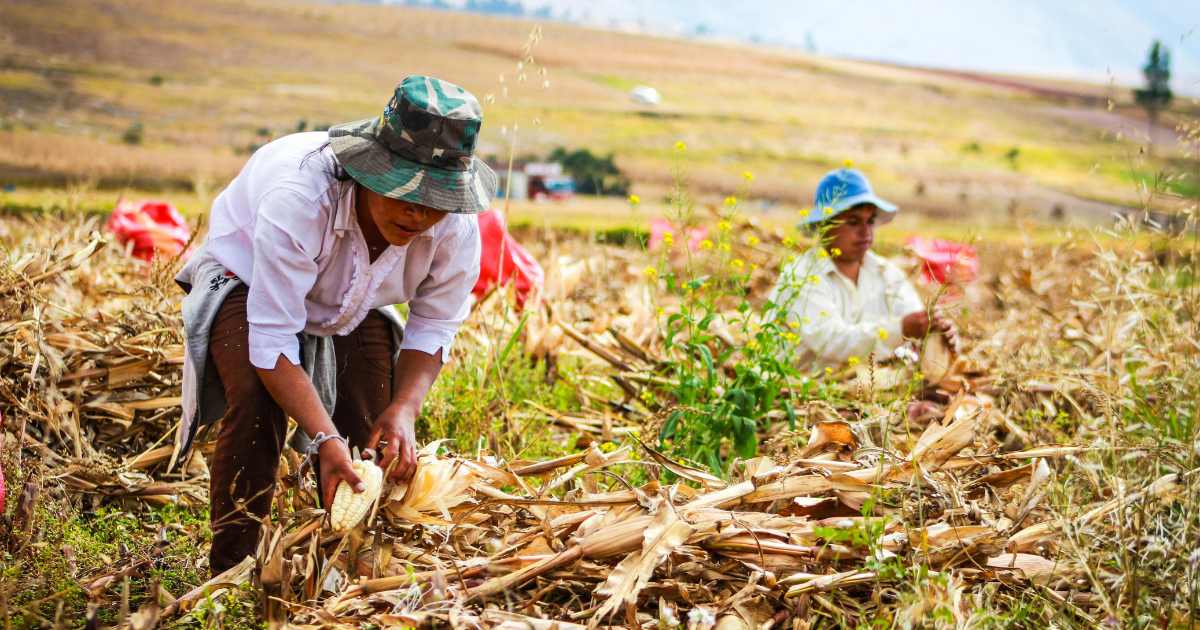When you consider venturing into agriculture, there are a few vital questions that you need to ask. More than the what, why, when and how questions, you need to investigate the entirety of how you will approach your business.
It’s time to be brutally honest with yourself. You’ve already decided that agriculture is for you, but figuring out how and what you are going to farm isn’t as easy as picking what you are passionate about. Here are seven questions to help you.
1. What Do I Already Have?
A good starting point is to figure out what you have and what you still need. This includes space or a facility, knowledge and skills, livestock or crop inputs, equipment and funding.
You need to find a location for your farming operation. This can be either buying or renting farmland. If you are looking into innovative agricultural methods like vertical farming, you might consider a warehouse instead of land.
Make a list of what you have and what you will need to acquire. Next, make a note of how you intend to acquire the missing elements, such as where you will purchase or hire them.
2. How Do I Finance My Operation?
Most entrepreneurs bootstrap their businesses, pushing every last penny they saved into making a business a success. However, others are willing to take on debt, taking out a loan to purchase equipment, land or livestock.
Obtaining funding has multiple elements involved. If your farming operation is applying for funding, and it is a start-up, you might not be able to obtain a business loan. However, you can investigate options for non-repayable grants as well as a personal loan. It might also be worth it to obtain external investors.
3. Choose your Business Model
As with any business, you need to determine the business model you will use to run your business.
You can establish a cooperative, a joint venture or even a partnership. Most commonly, agribusinesses use the joint venture structure. You will approach this in the same way that you approach pitching to investors, after all, that is what you are essentially doing: finding investors to join your venture.
4. What Is My Market Access?
Agribusinesses also need to factor in the market access they have; it doesn’t make sense to start your own venture without having market access. If you are rearing cattle, for example, consider how you will sell these animals. Will it be a live sale or per kg of a carcass to a butchery? Furthermore, how will you connect with your customer? Will transportation be included?
5. What Do the Numbers Say?
You must evaluate the costs involved in the business. This includes:
- Capital required,
- The expected returns,
- Cost of entry,
- Estimated running costs
You can use a budgeting tool or template to determine the funds that you will need.
6. What Are The Risks?
Agriculture and farming are industries that are full of risks, mainly because nature can be volatile. Droughts, floods, hail or wind damage, veld fires, pests, disease and theft are all risks that commonly affect farmers. Other factors, such as the death or illness of the owner or landlord, fraud or accidental damages to farm equipment, are also risks that you need to be aware of.
Obtaining insurance is a good risk mitigation strategy, but read the policy carefully, as not all threats are covered in all policies.
7. What Is My Sustainable Growth Rate?
A business’s sustainable growth rate is the total speed at which it can grow without needing additional financial resources. For this calculation, you will need to understand how much your earnings are, what your retained earnings or savings are, as well as the withdrawals and expenses.
The sustainable growth rate is the maximum rate of growth that a farm can sustain without having to increase financial leverage or look for outside financing. The sustainable growth rate can be computed using information on earnings, retained earnings or savings, and business withdrawals.
By asking yourself these seven vital questions, you can gain a deeper understanding of what you will need before you make the investment in agriculture. Since this is an industry with many risks and uncertainties, you have to have an idea of what you are getting yourself into.
Crédito: Link de origem


